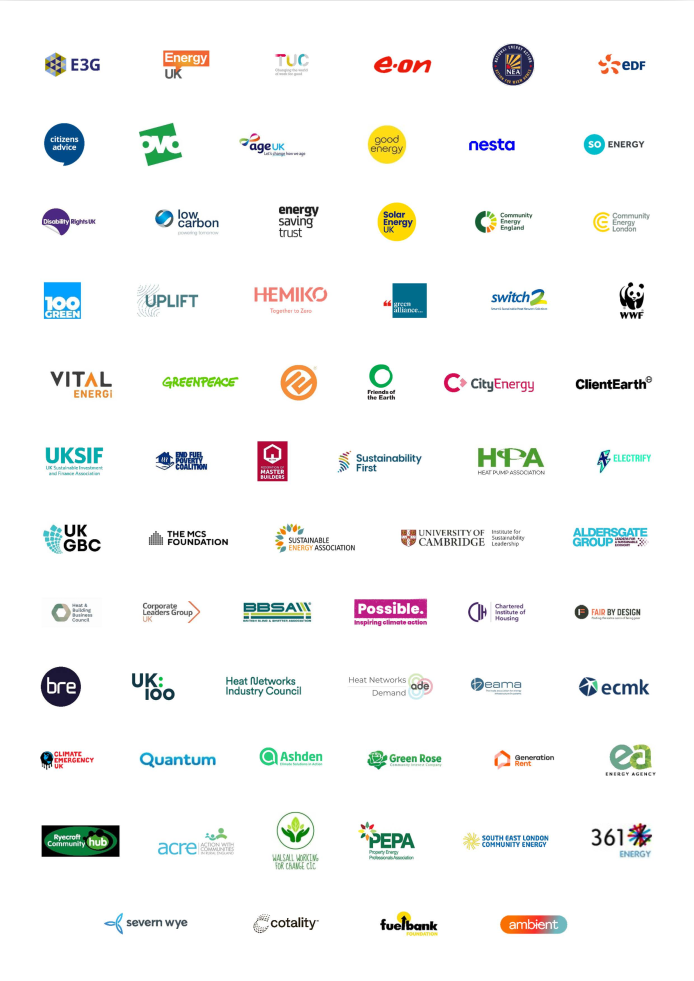
Sector news
Community Energy England joins call to protect Warm Homes Plan funding
Community Energy England has joined over 60 organisations urging Chancellor Rachel Reeves not to cut funding for the government’s Warm Homes Plan in the upcoming Budget.
The letter, organised by E3G and reported in the Guardian, warns that reducing support for the plan would undermine the UK’s climate goals, increase energy bills, and jeopardise thousands of skilled jobs.
The Warm Homes Plan is central to cutting emissions, improving comfort, and tackling fuel poverty by funding energy efficiency upgrades and low carbon technologies such as insulation, draught-proofing, and heat pumps across both homes and non-residential buildings. The letter highlights that cutting the portion funded through energy bills, without equivalent Treasury investment, would abandon £6 billion of planned investment between 2026/27 and 2029/30, resulting in hundreds of thousands fewer upgrades, particularly for low income households.
The scale of the challenge is stark. In 2024, 36.3 percent of households in England, around 8.99 million, were required to spend more than 10 percent of their income (after housing costs) on domestic energy (NEA, DESNZ). Cutting investment in home retrofit would leave millions trapped in cold, inefficient homes and worsen already high levels of fuel poverty.
The signatories warn that such cuts would also destabilise a £20 billion industry supporting over 100,000 jobs, and deter billions of pounds of private investment already on hold pending clarity over the plan’s future.
At the same time, community energy organisations are already demonstrating what effective investment in energy efficiency and local solutions can achieve. According to our latest State of the Sector report, 151 community organisations are providing energy efficiency and fuel poverty support, 125 are delivering retrofit services, and 77 are helping local people and businesses to reduce energy use. Together, they engaged more than 61,000 individuals in energy efficiency initiatives last year, helped save £1.86 million on bills, and reinvested £3.97 million from community benefit funds into local services, training, and warm, safe community spaces.
This work shows that investing in community-led retrofit and energy advice brings lasting benefits: warmer homes, lower bills, healthier people, and stronger local economies. Sustained funding for the Warm Homes Plan is essential to unlock these benefits at scale.
The health case for warm homes is clear. The Building Research Establishment estimates that poor housing costs the NHS over £1 billion a year, mainly due to illnesses caused by cold, damp and unsafe homes. And according to the NHS Confederation’s Pathway to Prevention report, adapting 100,000 homes where residents are likely to require treatment due to excess cold is the third most impactful intervention local authorities can make, delivering a return on investment of 17.1 for every pound spent.
The economic case is equally strong. The Retrofit at Scale report finds that reducing peak home heating demand could avoid the need for around £91 billion in future grid infrastructure upgrades. Redirecting that investment towards retrofit would lower bills, cut emissions, and strengthen energy security at far lower cost.
The urgency of action is also undeniable. Global warming has already reached around 1.4°C above pre-industrial levels and is likely to exceed 1.5°C within a few years, putting us at risk of crossing multiple climate tipping points. Scientists warn that seven of the nine planetary boundaries that keep Earth stable have already been breached. The longer governments delay, the greater the human and economic costs will become.
As the joint letter makes clear, investing in warm homes and clean heat is the only long-term way to reduce bills and protect people from future shocks. Every study shows that investing in climate action, particularly in energy efficiency and clean heat, is many times less costly than paying for the impacts of climate breakdown. It is a chance to create good jobs, strengthen local economies, and secure a fairer, healthier future for all.
Read the Guardian coverage or download the full joint letter (PDF).
